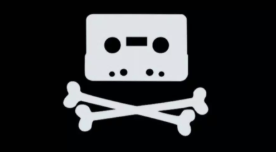 Dutch anti-piracy group BREIN is at the forefront of the battle against unlicensed services in the Netherlands.
Dutch anti-piracy group BREIN is at the forefront of the battle against unlicensed services in the Netherlands.
In the last year alone, BREIN conducted 479 investigations which resulted in the shutdown of 466 illegal sites and services, including torrent and streaming sites, IPTV providers, and platforms that distribute music without an appropriate license.
While BREIN has been hinting at criminal prosecutions for a while, the anti-piracy group tends to focus on civil actions. BREIN certainly doesn’t shy away from taking matters to court but whenever it can, settlements and an agreement to cease and desist can be enough to ward off more serious action.
BREIN Targets a 350,000 Track DJ Record Pool Service
Late last week, BREIN revealed an investigation into the operator of an online service that provided access to an illegal DJ record pool. Providing such a service requires extensive licensing from authors and neighboring rightsholders but according to BREIN, the man had not obtained the necessary permission.
The service was fairly comprehensive. BREIN estimates that the platform offered around 350,000 tracks for download but, unlike a regular pirate site, users were charged a subscription of 250 euros per year. This made it a for-profit enterprise not dissimilar to those offered by illicit IPTV providers, for example.
Operation Shut Down, Settlement Reached
It is unclear whether the DJ service met the threshold for criminal enforcement measures in the Netherlands but the for-profit distribution of copyrighted content certainly raises that prospect. In the event, however, BREIN decided to tackle the matter on its own and as a result, evidence and hardware (including digital storage devices) were seized from the operator’s home.
Ultimately, BREIN agreed to settle its differences with the operator outside court.
“After consultation with his lawyer, the man chose to settle the case by means of a settlement,” BREIN reports.
“He has signed a declaration of abstention with a penalty clause in the event of future infringements of 2,500 euros per day (or part thereof) with a maximum of 50,000 euros. He also allowed access to the seized digital documents. Finally, he paid 20,000 euros in final discharge.”
While the penalties for non-compliance are harsh and the 20,000 euros settlement not insignificant, had this taken place elsewhere in Europe a few years ago, the outcome could have been very different.
DJ in the UK Jailed for Operating a Similar Resource
Back in 2015, Liverpool DJ Wayne Evans (known online as OldSkoolScouse) was raided by the Police Intellectual Property Crime Unit following an investigation carried out by licensing outfit PRS for Music. Evans had uploaded music to torrent sites such as The Pirate Bay and KickassTorrents but also ran DeeJayPortal, a download site specializing in acapella versions of music tracks.
“We’re committed to partnering with PIPCU to enforce against illegal services that are not willing to work with us towards a legitimate licensed model, and which continue to exploit our members’ work without permission,” PRS said at the time.
After entering a guilty plea in October 2016, Evans was later sentenced on two counts of distributing an article infringing copyright and one of possessing or controlling an article for use in fraud. Fraud typically carries a harsher sentence in the UK and prosecutions under this legislation are now favored by copyright holders.
Police originally claimed that Evans was making considerable amounts of money from his enterprise but at his sentencing, Judge Robert Trevor-Jones accepted that Evans hadn’t been motivated by personal gain. This stands in contrast to the BREIN matter where profit was clearly the driver. Nevertheless, Evans was sentenced to 12 months in prison, despite having no previous convictions.
Outcomes Depend on The Mood of Rightsholders
While the alleged scale of offending certainly plays a key part, the outcomes in these two cases raise interesting questions. BREIN was obviously keen to shut the unlicensed DJ service down, something it achieved without police involvement while also winning a settlement. The news of the outcome also sends a deterrent message since few people have 20,000 euros kicking around to pay off rightsholders.
PRS, on the other hand, clearly wanted to send a more forceful deterrent message so instead of a cease-and-desist, took the decision to go for the jugular, resulting in the closure of the service but also a prison sentence for Evans. It’s unclear what BREIN would’ve done had his offending have been in the Netherlands but cases thus far suggest that particular outcome would’ve been unlikely.
Evans, it appears, was doing the wrong thing at the wrong time in the wrong place with the wrong adversary. Had he been elsewhere in Europe at the time, things may have gone quite differently.
The overriding message is that in the current environment, operating piracy services in the UK has a greater chance of attracting the attention of the police than ever before. And when rightsholders want to send a public message of deterrence, outcomes can be serious.





